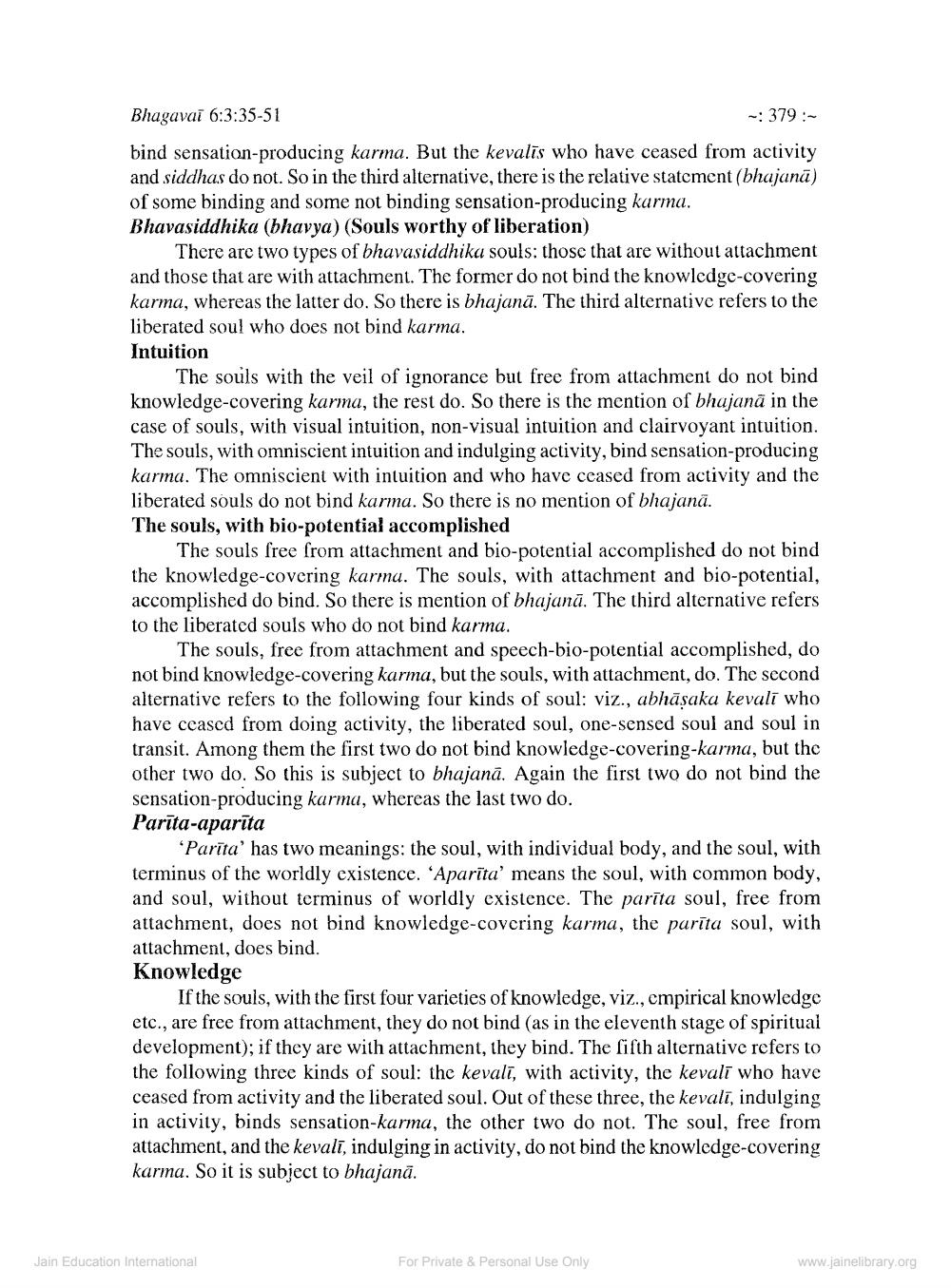________________
Bhagavai 6:3:35-51
-: 379:
bind sensation-producing karma. But the kevalīs who have ceased from activity and siddhas do not. So in the third alternative, there is the relative statement (bhajanā) of some binding and some not binding sensation-producing karma. Bhavasiddhika (bhavya) (Souls worthy of liberation)
There are two types of bhavasiddhika souls: those that are without attachment and those that are with attachment. The former do not bind the knowledge-covering karma, whereas the latter do. So there is bhajanā. The third alternative refers to the liberated soul who does not bind karma. Intuition
The souls with the veil of ignorance but free from attachment do not bind knowledge-covering karma, the rest do. So there is the mention of bhajanā in the case of souls, with visual intuition, non-visual intuition and clairvoyant intuition. The souls, with omniscient intuition and indulging activity, bind sensation-producing karma. The omniscient with intuition and who have ceased from activity and the liberated souls do not bind karma. So there is no mention of bhajanā. The souls, with bio-potential accomplished
The souls free from attachment and bio-potential accomplished do not bind the knowledge-covering karma. The souls, with attachment and bio-potential, accomplished do bind. So there is mention of bhajanā. The third alternative refers to the liberated souls who do not bind karma.
The souls, free from attachment and speech-bio-potential accomplished, do not bind knowledge-covering karma, but the souls, with attachment, do. The second alternative refers to the following four kinds of soul: viz., abhāsaka kevali who have ceased from doing activity, the liberated soul, one-sensed soul and soul in transit. Among them the first two do not bind knowledge-covering-karma, but the other two do. So this is subject to bhajanā. Again the first two do not bind the sensation-producing karma, whereas the last two do. Parīta-aparīta
'Parīta' has two meanings: the soul, with individual body, and the soul, with terminus of the worldly existence. Aparīta' means the soul, with common body, and soul, without terminus of worldly existence. The parīta soul, free from attachment, does not bind knowledge-covering karma, the parīta soul, with attachment, does bind. Knowledge
If the souls, with the first four varieties of knowledge, viz., empirical knowledge etc., are free from attachment, they do not bind (as in the eleventh stage of spiritual development); if they are with attachment, they bind. The fifth alternative refers to the following three kinds of soul: the kevali, with activity, the kevali who have ceased from activity and the liberated soul. Out of these three, the kevali, indulging in activity, binds sensation-karma, the other two do not. The soul, free from attachment, and the kevali, indulging in activity, do not bind the knowledge-covering karma. So it is subject to bhajanā.
Jain Education International
For Private & Personal Use Only
www.jainelibrary.org




